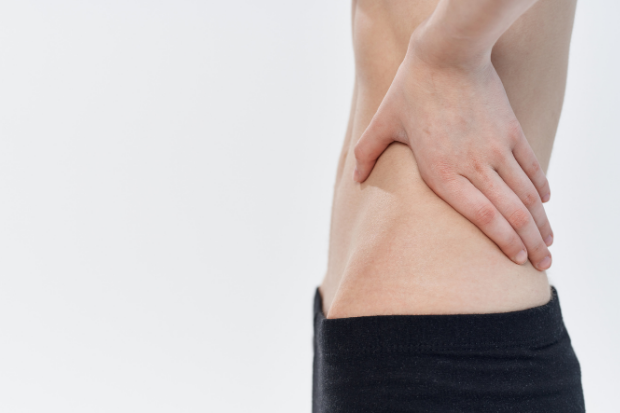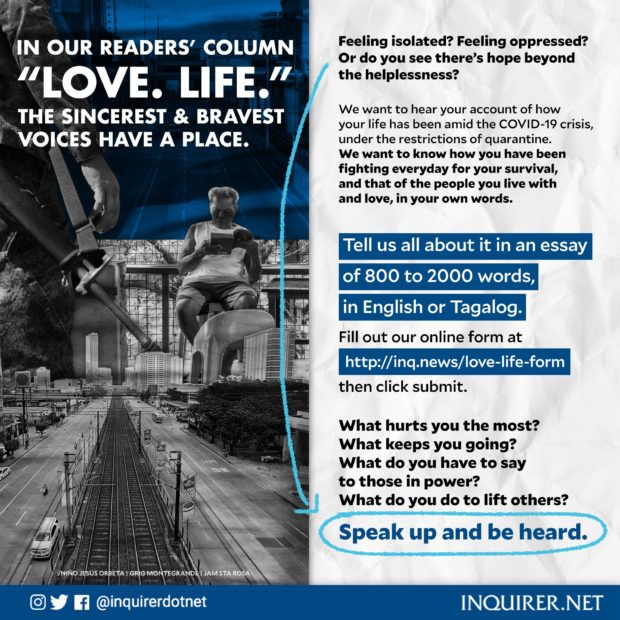40, anorexic, comorbid

INQUIRER.net stock photo
Getting vaccinated was an informed choice. And it was also a desperate choice. I hit 40 in 2020, right smack in the middle of the pandemic, and I thought maybe this year it was going to be different.
I got vaccinated as both a health care professional (I am a registered psychologist) and a “person with comorbidities.” Although anorexia is not in the official list of comorbidities, I know I belong to the vulnerable group. My struggle with anorexia has taken a wild ride due to COVID, and this is what my story is about.
I had my first anorexic episode when I was 14. I was overweight and I was bullied and family was complicated. As a professional, I know (from hindsight) that a lot of it can be attributed to faulty family dynamics. But now that I am a parent myself, I don’t want to point fingers and blame. My parents did their best, and that was that. So what happened was a result of a combination of many factors. Looking at magazines with skinny ladies as idols, for one, did not help.
How does a person become anorexic? There are in indications that it ran in the family — I can name two people I am directly related with who have serious body image issues. My first anorexic episode was marked by thinness, excess body hair (lanugo), feeling cold all the time (in tropical Philippines), and my family frantically trying to solve me.
Long story short, anorexia “went away” when I entered college and then got a life. It resurfaced again when I was 35, after I gave birth to my second child, and I was sort of going through a mid-life crisis. I got better, thanks to therapy (I am in the business, so to speak, it was easy getting help as soon as I knew what was going on).
But anorexia took its toll. By the tail end of it, I had pneumonia, I lost my voice due to a viral infection, and I was very, very thin. In short, immunocompromised. I am better now, I have normal weight. But it is still a struggle to keep my balance and not drown from the stress that pummels me. Every. Single. Day.
Wait, what stress? I still have a job, my husband still has a job, we live a typical middle-class life, so, what stress?
Mentally problematic people, people with mental problems and mental disorders — I belong to this subgroup. We are affected differently by the normal things that people brush off. I can only speak for myself: at my worst, I am emotionally reactive, I chafe easily, I am insecure, I hoard things to stave off the fear. I am worried, fearful, toxic, manic. I can’t sleep well. The thoughts in my head, these thoughts in my head, they overwhelm me. Normal people don’t have as many thoughts as I have.
I’ve learned how to live with these thoughts, impulses, irrational feelings and the lot, but only after intentionally learning them. I do yoga and meditation, and I write. I don’t have a therapist now, but I can call one in a jiffy. Suffice to say, mentally problematic people are not in a good place right now, due to COVID-19.
My mental illness, I acknowledge it. I own it. I see it this way: if I am not working on anorexia recovery, I am not doing it right. Because of my experience working with people with substance abuse problems, I have learned enough to say that me having anorexia is like having an addiction.
I am addicted to not eating. I am addicted to starving. Starving gives me a high. Everybody likes to be high. Sometimes.
It’s like I have it in reverse. Level with me here. I now have a diet plan. And I stick to it every day. This diet plan tells me the correct amount of calories to eat, balanced with the minerals and carbohydrates and what not, critiqued by a nutritionist (who I pay out-of-pocket). Because if I don’t have a meal plan, I tend to under-eat and then get the starvation high. And that’s when I get in trouble.
If most people eat because they are stressed, I don’t eat when I am stressed. But turning to one’s addiction during stress is not the right thing to do, not the healthy thing to do.
I want to be a good role model for my kids. They need to see that though I am struggling with it, I am fighting it, and I am going to succeed.
And so I brave the steps to mental health recovery during this pandemic: I fight this disease (anorexia) and I fight this disease (COVID-19).
I found my way in the vaccination line, clutching my medical records and hoping to get vaccinated. I had my records updated, as my doctor put “immunocompromised” somewhere there, and that was it. Vaccine jab. Done. I went straight home. I was scared. If I die, I have two young kids, and I don’t want to die. I did not want to die when I was 35. I don’t want to die now that I am 40.
I still got half of my life to live, and I have a lot to say. About anorexia, about mental health. About raising kids.
_
Jinjin Melany Heger is a psychologist who resides in Manila. She practices yoga and advocates mental health awareness.
RELATED STORIES:
From a quarantine diary: Testing positive for COVID-19

Image: INQUIRER.net/Marie Faro
For more news about the novel coronavirus click here.
What you need to know about Coronavirus.
For more information on COVID-19, call the DOH Hotline: (02) 86517800 local 1149/1150.
The Inquirer Foundation supports our healthcare frontliners and is still accepting cash donations to be deposited at Banco de Oro (BDO) current account #007960018860 or donate through PayMaya using this link.



















